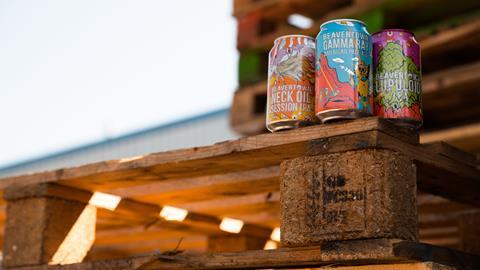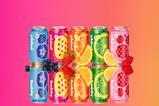It’s a descriptor that – at its worst – conjures up clichéd images of bearded hipsters sniffing hops and rows of cartoon-laden cans on supermarket shelves. But there’s no doubting ‘craft beer’ is now part of the mainstream consumer lexicon. It’s scrawled across pub blackboards, frequently parodied on TikTok and even features prominently in hit Australian comedy Colin From Accounts.
That mainstream awareness has come with a cost. Amid the rising popularity of flavourful, small-batch brews, the meaning of the term ‘craft beer’ has been muddied by multinational brewers.
Big brewers have muscled in on craft either by acquiring rapidly growing breweries like Beavertown, Brixton and Camden Town, or by incubating and launching brands of their own. That’s why the Society of Independent Brewers and Associates (SIBA) has this week launched an ‘Indie Beer’ mark, to set the truly independent operations apart from the rest. So has the term craft beer now lost all meaning?
A ‘fuzzy term’
Big beer’s co-opting of the term craft came from a desire to wrest back control of the market from smaller players, explains beer writer and author of Craft: An Argument Pete Brown.
“Craft beer happened without the permission of big beer,” he says. “They like to control the market and they’re very good at it with their marketing. But all of a sudden the most exciting thing in beer for a generation hadn’t come from them.”
At the start, the term craft beer had “warm, fuzzy” connotations with “a lot of resonance for drinkers”, Brown says. But it was also vague, which made it relatively easy for larger brewers to take over. “They deliberately set out to make craft meaningless, to obscure it, to kind of try and neutralise it.”
It means that now, for every hand-crafted, double dry-hopped IPA brewed by an independent brewer, there’s another mass-produced, insipid imitator shrouding itself under the catch-all veil of craft.
Which brewers are masquerading as craft?
Unfortunately for artisan ale-makers, the average consumer doesn’t know the difference. Or so suggests a new YouGov survey commissioned by SIBA.
In the survey, consumers were shown images of five beers from once-independent breweries bought out by global beer companies; Beavertown Neck Oil (Heineken), Fullers London Pride (Asahi), Camden Hells (Budweiser Brewing Group), Brixton Reliance Pale Ale (Heineken), and Sharp’s Doom Bar (Molson Coors).
The results were revealing. As many as 40% thought Beavertown was an independent brewer – meaning the Heineken-owned brand gained a higher percentage than genuinely independent breweries such as Vocation, Fyne Ales and Five Points. When told about the ownership of the brands they believed to be craft, three-quarters of those surveyed said they felt consumers were being misled.
“There’s a widespread trend of people who actively seek out small independent businesses and want to support them,” says Brown. “If you’re buying Neck Oil thinking you’re supporting the little guy and then it turns out you’re not, you’re going to feel cheated.”
SIBA fights back
The big brewers, which gain from every consumer duped, will hardly be willing to address those misconceptions. So it’s down to small brewers to emphasise their independent credentials.
They have plenty of incentive to do so. Smaller brewers already face competitive disadvantages when it comes to negotiating with suppliers for ingredients and fighting for tap and shelf space for their brews. Their one advantage was consumer willingness to buy from independent breweries – but now, many consumers are unable to tell them apart from their multinational competitors.
The desire to regain that advantage prompted the launch of SIBA’s ‘Indie Beer’ mark, to be used on beer pump clips, cans and bottle labels as a way of identifying genuine independent breweries. The campaign also includes an online ‘beer checker’ tool, which allows people to check who owns the brewery they’re drinking from.
“There is more choice than ever when buying beer, but it can be really hard to know what’s the real deal,” says SIBA chief executive Andy Slee. The beer checker would “make it really quick and simple” for shoppers to check if they are buying from a genuine independent, he adds.
Will indie beer be a success?
Indie Beer already has the support of consumer organisation CAMRA, as well as over 200 SIBA members including Cloudwater, Thornbridge and Roosters Brewing.
“It is vital that consumers have access to the right information about where their beer is being brewed, and whether it’s in independent ownership,” says CAMRA chairman Ash Corbett-Collins.
Brown is also in favour of the campaign, but warns its success will likely depend on how wide the uptake is, and whether the term ‘indie beer’ can resonate in the same way as craft.
“I can see why they’re doing it,” he says. “I totally understand why you’d want to move from craft to independent because you’re moving from something you can’t define to something that is very distinctive and clear.
“My concern is that indie is a smaller concept than craft was, and because of that it has slightly less relevance. The key to it is making it stand for something. Tell me why it’s good for me, and why I should seek it out.”
For now, however, smaller brewers will surely just be relieved to once again have a tool in their arsenal to fight back against the big boys.

























No comments yet